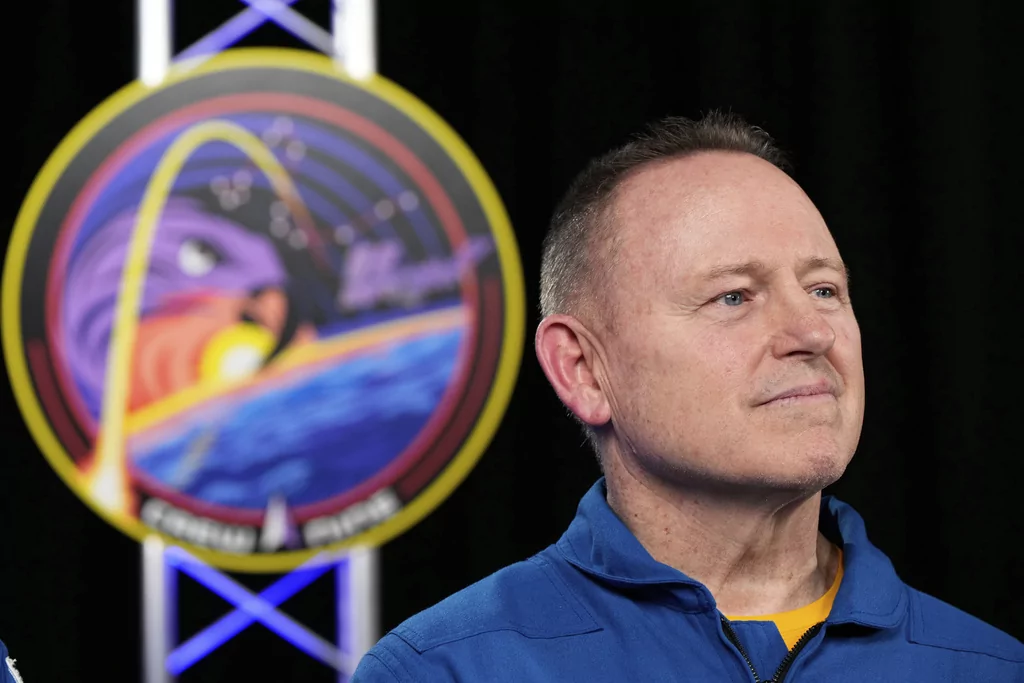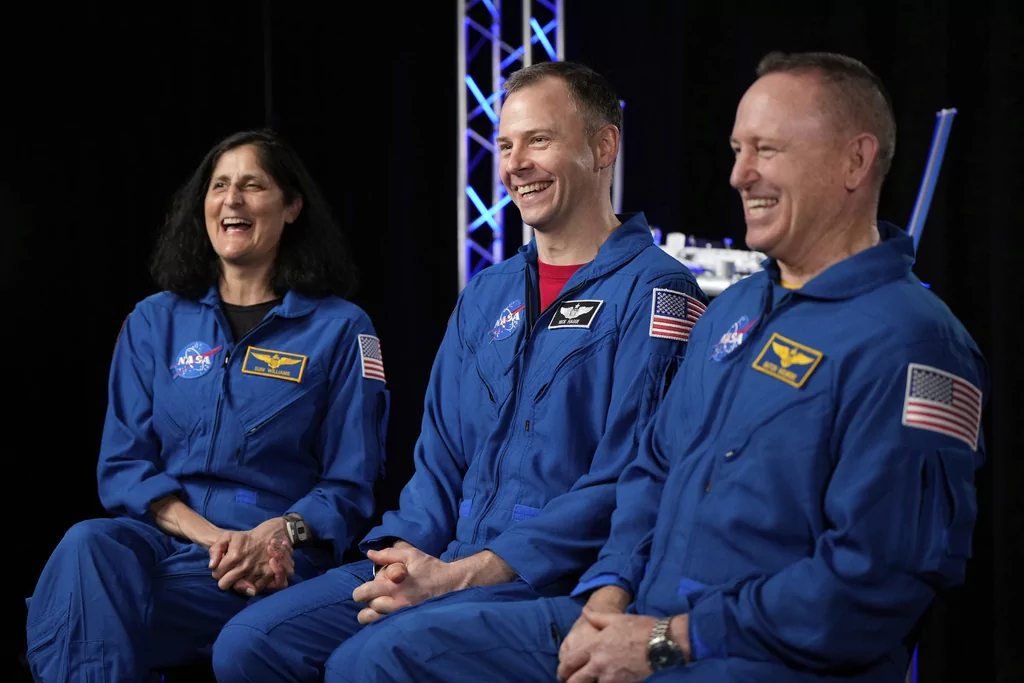Nearly two weeks ago, astronauts Butch Wilmore and Sunita Williams returned to Earth after being stuck in space for nine months.
During one of his first interviews on Monday since coming home, Wilmore reflected on his adventure to the Washington Examiner after the world watched his eight-day Starliner mission to space turn into a nine-month-long hiatus at the International Space Station. NASA astronaut Nick Hague, who helped launch the SpaceX spacecraft that brought Wilmore and Williams home earlier this month, also ruminated on the experience and the future of space exploration in the United States.
Wilmore said he is handling the transition back to Earth “pretty well” because of his previous experience on space missions.
“Return to Earth is much like the last time. We’ve all — we’ve both flown in space before, so that familiarity with the various aches and pains and neuro-vestibular and balance and all that that we have experienced in the past really helped this time,” he said. “It’s been somewhat seamless because of the experience that we’ve had in the past.”

Wilmore has completed a total of five spacewalks during his career. He and Hague conducted one spacewalk during their station stay on their latest mission.
While technical problems with Boeing’s Starliner spacecraft prevented Wilmore and his crew from returning to Earth for months, the astronaut called the overall mission a “success,” hailing the unprecedented innovation and international coordination that was required to bring them back as a blueprint for future expeditions.
“Changing Nick’s plan from coming up with his crew that he’d been training with for years, and then coming up with just two to effect those seats to bring us back, that was a monumental effort, and I think there’s some great lessons learned out of that, and we will incorporate those going forward,” Wilmore said.
“This was completely out of the ordinary, completely out of the expected, and the system — which is many people passionate about human space flight, working together across multiple agencies, not just within the United States, but abroad — our international partners, coming together to effect the plan to continue our presence in space, continue the expeditionary kind of mindset when crews arrive,” he added.
Hague said his main takeaway from the experience is that years of building resilience helped the space community coalesce to meet the moment and bring Wilmore and Williams home.
“I guess a lesson that can apply to anybody … is that you don’t build resilience in the moment. You build the foundation of resilience years in advance,” he said. “The entire astronaut corps was constantly building that foundation of resilience so that we can adapt to the situation that’s thrown at us because every space flight ends up becoming unique.”

“There are unique challenges, there are things that are unexpected, and you have to respond to those,” Hague added. “You know, if you’re facing challenges in your life, ask for help, reach out, and help others. That’s how you get through all of this stuff, and we’re just an example of that.”
Wilmore also commented on hopes that in the near future, civilians will, en masse, take to space and even colonize Mars. While the future “is bright,” the U.S. is still in the “fledgling stages” of space exploration, making it “unrealistic” that untrained civilians will soon be able to enjoy their own space travels, Wilmore said. His comments come as Jared Isaacman, whom Trump nominated to lead NASA, has said he sees an explosion of millions of space sojourners lifting off from Earth to survey space.
“I think we can get there eventually, but we are still in the fledgling stages of that,” Wilmore said. “So, transportation to and from space by those that are not trained like we have been over years and years and years is not something that anyone should aspire to. You should aspire, I guess, if that’s what you desire to do. But you can’t just think that you go to space like many do, and that you can, you know, you’re capable of doing anything, because that’s just not the case. That’s not realistic.”
“We are in our infancy of space travel,” he added. “And we are taking baby steps because that’s a necessity.”
“We are, for lack of a better term, we are professional astronauts, and that’s what we’ve trained for for years and years, the roles that we play,” Wilmore added. “And we may not do things that are astronauty every single day on the space station, but there are days that the training and the specific things that we are doing, only professional astronauts can do. So, that is not something you want to just throw somebody into.”
NASA ASTRONAUTS SPLASH DOWN IN SPACEX CAPSULE AFTER NINE MONTHS IN SPACE
Hague expressed enthusiasm for the idea of more people some day venturing into space. Everyone benefits from broadening their horizons and stepping outside of the bubble billions of people know as Earth, he said.
“The idea of having thousands, or tens of thousands, or, you know, countless civilians going and experiencing what it’s like to see the Earth from space — that really excites me, because the more people that can share in that perspective and look down and reflect on just where we are in the universe, and look down at the Earth for the small, little planet that it is in all vastness, look down at continents that really don’t have borders, look down and see that we are all on this small, little rock together,” he said. “I think we all end up benefiting from more people sharing that perspective.”














